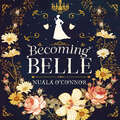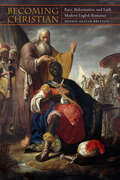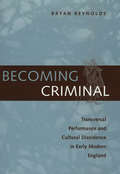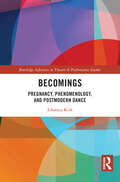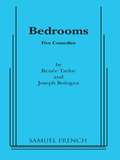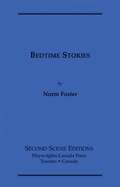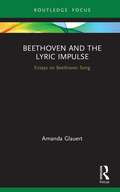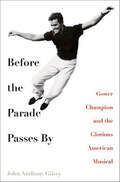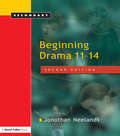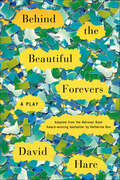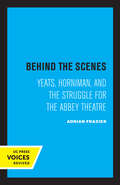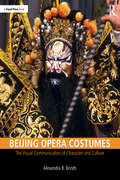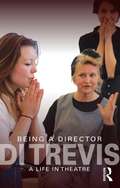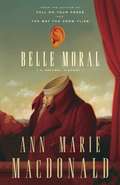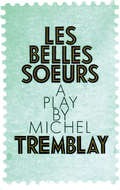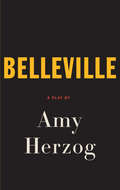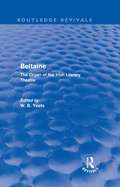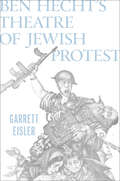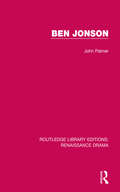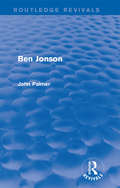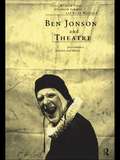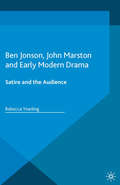- Table View
- List View
Becoming Belle
by Nuala O'Connor'Luminous' SEBASTIAN BARRY'Incandescent characters and mellifluous prose' LISA CAREY'Reminiscent of Edith Wharton at her very best' LIZ NUGENT_________The true story of a woman ahead of her time . . . In 1887, Isabel Bilton is the eldest of three daughters of a middle-class military family, growing up in a small garrison town. By 1891 she is the Countess of Clancarty, dubbed "the peasant countess" by the press, and a member of the Irish aristocracy. Becoming Belle is the story of the four years in between, of Belle's rapid ascent and the people that tried to tear her down. Reimagined by a novelist at the height of her powers, Belle is an unforgettable woman. Set against an absorbing portrait of Victorian London, hers is a timeless rags-to-riches story a la Becky Sharpe._________Praise for BECOMING BELLE'Nuala O'Connor has the thrilling ability to step back nimbly and enter the deep dance of time. This is a hidden history laid luminously before us of an exultant Anglo-Irish woman navigating the dark shoals and the bright fields of a life' SEBASTIAN BARRY, award-winning author of The Secret Scripture and Days Without End'Becoming Belle is so mesmerizing you will be distraught when it ends.O'Connor has resurrected a fiery, inexorable woman who rewrites the script on a stage supposedly ruled by men. Sensual, witty, daring, and unapologetically forward.' Lisa Carey, author of The Stolen Child'Belle's determination to live her life on her own terms and in defiance of her times makes her a fascinating subject' Irish Central'Masterful storytelling! I was putty in Nuala O'Connor's hands. She made the unsinkable Belle Bilton and her down-to-earth sister Flo real to me, and brought 1880's London to my living room. Encore! Encore!' Lynn Cullen, bestselling author of Mrs. Poe'A glorious novel in which Belle Bilton and 19th century London are brought roaring to life with exquisite period detail' Hazel Gaynor, New York Times bestselling author of A Memory of Violets'Thoroughly engrossing and entertaining read' Liz Nugent'Thrillingly dramatic and achingly moving and profoundly resonant into this present era' Robert Olen Butler, author of A Good Scent from a Strange Mountain'O'Connor gently unfolds Belle's tale in a manner that is compelling and disarming. The ambience may be Victorian elegance but the sheer honesty of O'Connor's writing is sensual, authentic and earthy. A delight!' Rose Servitova, author of The Longbourn Letters
Becoming Christian: Race, Reformation, and Early Modern English Romance
by Dennis Austin BrittonBecoming Christian argues that romance narratives of Jews and Muslims converting to Christianity register theological formations of race in post-Reformation England. The medieval motif of infidel conversion came under scrutiny as Protestant theology radically reconfigured how individuals acquire religious identities.Whereas Catholicism had asserted that Christian identity begins with baptism, numerous theologians in the Church of England denied the necessity of baptism and instead treated Christian identity as a racial characteristic passed from parents to their children. The church thereby developed a theology that both transformed a nation into a Christian race and created skepticism about the possibility of conversion. Race became a matter of salvation and damnation.Britton intervenes in critical debates about the intersections of race and religion, as well as in discussions of the social implications of romance. Examining English translations of Calvin, treatises on the sacraments, catechisms, and sermons alongside works by Edmund Spenser, John Harrington, William Shakespeare, John Fletcher, and Phillip Massinger, Becoming Christian demonstrates how a theology of race altered a nation’s imagination and literary landscape.
Becoming Criminal: Transversal Performance and Cultural Dissidence in Early Modern England
by Bryan ReynoldsIn this book Bryan Reynolds argues that early modern England experienced a sociocultural phenomenon, unprecedented in English history, which has been largely overlooked by historians and critics. Beginning in the 1520s, a distinct "criminal culture" of beggars, vagabonds, confidence tricksters, prostitutes, and gypsies emerged and flourished. This community defined itself through its criminal conduct and dissident thought and was, in turn,officially defined by and against the dominant conceptions of English cultural normality.Examining plays, popular pamphlets, laws, poems, and scholarly work from the period, Reynolds demonstrates that this criminal culture, though diverse, was united by its own ideology, language, and aesthetic. Using his transversal theory, he shows how the enduring presence of this criminal culture markedly influenced the mainstream culture's aesthetic sensibilities, socioeconomic organization, and systems of belief. He maps the effects of the public theater's transformative force of transversality, such as through the criminality represented by Shakespeare, Jonson, Middleton, and Dekker, on both Elizabethan and Jacobean society and the scholarship devoted to it.
Becomings: Pregnancy, Phenomenology, and Postmodern Dance (ISSN)
by Johanna KirkThis book explores postmodern choreographic engagements of pregnant bodies in the US over the last 70 years.Johanna Kirk discusses how choreographers negotiate identification with the look of their pregnant bodies to maintain a sense of integrity as artists and to control representations of their gender and physical abilities while pregnant. Across chapters, the artists discussed include Anna Halprin, Trisha Brown, Twyla Tharp, Sandy Jamrog, Jane Comfort, Jody Oberfelder, Jawole Willa Jo Zollar, Miguel Gutiérrez, Yanira Castro, Noémie LaFrance, and Meg Foley. By presenting their bodies in performance, these artists demonstrate how their experiences surrounding pregnancy intersect not only with their artform and its history but also with their personal experiences of race, gender, and sexual identification. In these pages, Johanna Kirk argues that choreography offers them tools that are alternative to medicine (or other forms of social representation) for understanding what/how pregnant bodies do and feel and what they can mean for individuals and their communities. The works within these chapters invite readers to see dancing bodies and pregnant bodies in new ways and for their potential to manifest new possibilities.This study will be of great interest to students and scholars exploring dance, theatre and performance, race, and gender.
Bedrooms
by Renee TaylorRenee Taylor and Joseph Bologna Comedy. . Interior Set . Plays include: . Alan, Betty and Riva (1 male, 2 females) Alan gets his mistress Betty to agree to join him in a menage a trois with Riva, a hooker who calls herself a sex therapist. Betty gets cold feet and acquiesces only when Alan convinces her it will help him make the decision to finally leave his wife. Afterward, Betty is depressed and, when she realizes Alan still isn't going to leave his wife, she threatens suicide. . Bill and Laura (3 males, 3 females) Bill and Laura have recently separated. They show up at the same dinner party with dates and come face-to-face in the bedroom where the coats are being stored. They immediately begin fightng. They go out to the party, but soon return looking for their coats, which are now buried. The fight gets heated as they criticize each other's dates and lives as single people. The more they fight the more they realize that their lives apart have been miserable. In each other's arms, they lock the door and throw the coats off the bed. . David and Nancy (1 males, 1 females) David wakes up with an anxiety attack, rushes to his daughter's bedroom and wakes her, certain there is a prowler outside. After she convinces him no one is there, what is really upsetting him surfaces. She is getting married in the morning and he thinks she's making a horrendous mistake. He goes through all the reasons why she should not marry Martin, reasons so outrageous that Nancy just sits there letting him have his tantrum. His love for his daughter and sense of loss at her impending marriage that are the cause of his upset. . Mr. Lewis and Mrs. Wexel (1 male, 1 female) Mr. Lewis, a widower, invites Mrs. Wexel, a widow who lives in the same Florida senior citizen center, up to
Bedtime Stories
by Norm FosterA radio shock jock pays a couple to make love on the air. A woman visits a dying man she feels she hurt years ago. Two men rob a house and discover a shocking secret. An aging rock star is confronted by a groupie. An accident-prone stripper meets with her no-nonsense boss. A woman leaving her husband lectures the movers on the proper way to treat a lady. Six interconnected scenes about friendship, romance, and the true meaning of love.
Beethoven and the Lyric Impulse: Essays on Beethoven Song (Routledge Voice Studies)
by Amanda GlauertAmanda Glauert revisits Beethoven’s songs and studies his profound engagement with the aesthetics of the poets he was setting, particularly those of Herder and Goethe. The book offers readers a rich exploration of the poetical and philosophical context in which Beethoven found himself when composing songs. It also offers detailed commentaries on possible responses to specific songs, responses designed to open up new ways for performing, hearing and appreciating this provocative song repertoire. This study will be of great interest to researchers of Beethoven; German song; aesthetics of words and music.
Before the Parade Passes By: Gower Champion and the Glorious American Musical
by John Anthony GilveyDuring the Golden Age of the Broadway musical, few director-choreographers could infuse a new musical with dance and movement in quite the way Gower Champion could. From his earliest Broadway success with Bye Bye Birdie to his triumphant and bittersweet valedictory, 42nd Street, musicals directed by Champion filled the proscenium with life. At their best, they touched the heart and stirred the soul with a skillful blend of elegance and American showmanship. He began his career as one-half of "America's Youngest Dance Team" with Jeanne Tyler and later teamed with his wife, dance partner, and longtime collaborator, Marge Champion. This romantic ballroom duo danced across America in the smartest clubs and onto the television screen, performing story dances that captivated the country. They ultimately took their talent to Hollywood, where they starred in the 1951 remake of Show Boat, Lovely to Look At, and other films. But Broadway always called to Champion, and in 1959 he was tapped to direct Bye Bye Birdie. The rest is history. In shows like Birdie, Carnival, Hello, Dolly!, I Do! I Do!, Sugar, and 42nd Street, luminaries such as Chita Rivera, Dick Van Dyke, Carol Channing, Mary Martin, Robert Preston, Tony Roberts, Robert Morse, Tammy Grimes, and Jerry Orbach brought Champion's creative vision to life. Working with composers and writers like Jerry Herman, Michael Stewart, Charles Strouse, Lee Adams, and Bob Merrill, he streamlined the musical making it flow effortlessly with song and dance from start to finish.John Gilvey has spoken with many of the people who worked with Champion, and in Before the Parade Passes By he tells the life story of this most American of Broadway musical director-choreographers from his early days dancing with Marge to his final days spent meticulously honing the visual magic of 42nd Street. Before the Parade Passes By is the life story of one man who personified the glory of the Broadway musical right up until the moment of his untimely death. When the curtain fell to thunderous applause on the opening night of 42nd Street, August 25, 1980, legendary impresario David Merrick came forward, silenced the audience, and announced that Champion had died that morning. As eminent theatre critic Ethan Mordden has firmly put it, "the Golden Age was over." Though the Golden Age of the Broadway musical is over, John Gilvey brings it to life again by telling the story of Gower Champion, one of its most passionate and creative legends.
Befriending the Commedia dell'Arte of Flaminio Scala
by Natalie Crohn SchmittThe most important theatrical movement in sixteenth- and early seventeenth-century Europe, the commedia dell'arte has inspired playwrights, artists, and musicians including Molière, Dario Fo, Picasso, and Stravinsky. Because of its stock characters, improvised dialogue, and extravagant theatricalism, the commedia dell'arte is often assumed to be a superficial comic style. With Befriending the Commedia dell'Arte of Flaminio Scala, Natalie Crohn Schmitt demolishes that assumption.By reconstructing the commedia dell'arte scenarios published by troupe manager Flaminio Scala (1547-1624), Schmitt demonstrates that in its Golden Age the commedia dell'arte relied as much on craftsmanship as on improvisation and that Scala's scenarios are a treasure trove of social commentary on early modern daily life in Italy.In the book, Schmitt makes use of her intensive research into the social and cultural history of sixteenth-century Italy and the aesthetic principles of the period. She combines this research with her insights drawn from studying with contemporary commedia dell'arte performers and from directing a production of one of Scala's scenarios. The result is a new perspective on the commedia dell'arte that illuminates the style's full richness.
Beginning Drama 11–14
by Jonothan NeelandsThis guide explores the roles, skills and knowledge needed to become an effective drama teacher. It combines practical advice on planning, teaching and assessing with the best teaching practices. It also offers lesson plans for years 7-9 students to use intheir teaching.
Behind the Beautiful Forevers: A Play
by David HareA stage adaptation of Katherine Boo's National Book Award-winning study of life in a Mumbai slumIndia is surging with global ambition. But beyond the luxury hotels surrounding Mumbai airport lies a makeshift slum, Annawadi, full of people with plans of their own. Zehrunisa and her son Abdul aim to recycle enough rubbish to fund a proper house. Sunil, twelve and stunted, wants to eat until he's as tall as Kalu the thief. Asha seeks to steal government antipoverty funds to turn herself into a "first-class person," while her daughter Manju intends to become the slum's first female graduate. But their schemes are fragile; global recession threatens the garbage trade, and another slum dweller is about to make an accusation that will destroy herself and shatter the neighborhood. For Behind the Beautiful Forevers, journalist Katherine Boo spent three years in Annawadi recording the lives of its residents. From her uncompromising book, David Hare has fashioned a tumultuous play on an epic scale.
Behind the Scenes: Yeats, Horniman, and the Struggle for the Abbey Theatre (The New Historicism: Studies in Cultural Poetics #11)
by Adrian FrazierBehind the Scenes presents the story of Dublin's famous Abbey Theatre and its major creative personalities: W. B. Yeats, Annie Horniman, J. M. Synge, and Lady Gregory. Part history, part sociology, part biography, Frazier's work recreates the forces that shaped the Abbey stage, forces that involved the spirited participation of actors, audiences, press, and financiers as well as of the famous poet-playwright who was its co-director. His book unfolds an entertaining and suspenseful tale, centered on the undeniably autocratic personality of W.B. Yeats and with the political struggles of Ireland as a backdrop. This title is part of UC Press's Voices Revived program, which commemorates University of California Press's mission to seek out and cultivate the brightest minds and give them voice, reach, and impact. Drawing on a backlist dating to 1893, Voices Revived makes high-quality, peer-reviewed scholarship accessible once again using print-on-demand technology. This title was originally published in 1990.
Beijing Opera Costumes: The Visual Communication of Character and Culture
by Alexandra B BondsBeijing Opera Costumes: The Visual Communication of Character and Culture illuminates the links between theatrical attire and social customs and aesthetics of China, covering both the theory and practice of stage dress. Distinguishing attributes include an introduction to the performance style, the delineation of the costume conventions, an analysis of the costumes through their historical precedents and theatrical modifications, and the use of garment shape, color, and embroidery for symbolic effect. Practical information covers dressing the performers and a costume plot, the design and creation of the make-up and hairstyles, and pattern drafts of the major garments. Photographs from live performances, as well as details of embroidery, and close-up photographs of the headdresses thoroughly portray the stunning beauty of this incomparable performance style. Presenting the brilliant colors of the elaborately embroidered silk costumes together with the intricate makeup and glittering headdresses, this volume embodies the elegance of the Beijing opera.
Being a Director: A Life in Theatre
by Di TrevisDi Trevis is a world-renowned director, whose work with Britain’s National Theatre, Royal Shakespeare Company, and directing productions worldwide, has deeply informed her knowledge of the director’s craft. In Being a Director, she draws on a wealth of first-hand experience to present an immersive, engaging and vital insight into the role of a director. The book elegantly blends the personal and the pedagogical, illustrating how the parameters of Time, Space and Motion are essential when creating a successful production. Throughout, the author explores and recycles her own formative life experiences in order to demonstrate that who you are is as integral to being a director as what you do.
Belle Moral: A Natural History
by Ann-Marie MacdonaldAnn-Marie MacDonald's love of the fabulous is in full force with this multi-layered reworking of her earlier play, The Arab's Mouth.Following her father's death, amateur scientist Pearl MacIsaac struggles to discover the secret of her family's past, which her father had been kept hidden with the help of the family doctor. Set in Scotland in 1899, this dark and redemptive gothic comedy is a story of family secrets that have come to life and of the birth and evolution of ideas - and truly a play of morals. Reaching out in two directions to reconcile the extremes of rationalism and romanticism, Belle Moral embraces a complex range of turn-of-the-century thought including Charles Darwin's theory of evolution, contemporary medical beliefs and the concept of eugenics.* * * * * * * * * *Copyright © 2005 A. M. MacDonald Holdings Inc.CAUTION: Professionals and amateurs are hereby warned that BELLE MORAL is subject to a royalty. It is fully protected under the copyright laws of the United States, Canada, United Kingdom, and all British Commonwealth countries, and of all countries covered by the International Copyright Union, the Pan-American Copyright Convention, and the Universal Copyright Convention. All performance rights, including professional, amateur, motion picture, recitation, public reading, radio broadcasting, television, video or sound taping, all other forms of mechanical or electronic reproduction, such as information storage and retrieval systems and photocopying, and rights of translation into foreign languages, are strictly reserved.Inquiries concerning the performance rights should be directed as follows: Lorraine Wells and Company Talent Management Inc., 10 St. Mary Street, Suite 320, Toronto, Ontario M4Y 1P9, (416) 413-1676 / fax (416) 413-1680.From the Trade Paperback edition.
Belles
by Mark DunnThis is a play in 2 acts and 45 phone calls. The six Walker sisters hail from Memphis, but now they are scattered all over the country. Only Peggy still lives in Memphis, where she cares for Mama. When the play begins, Peggy is phoning her sisters to tell them that Mama is in the hospital. Nothing serious she just ate some bad tuna. An intriguing story of vivid characters and involving conflicts emerges in the ensuing phone calls among the sisters. Your audiences will love this endearing play with strong roles for actresses. FEE: $75 per performance.
Belles Soeurs, Les
by Michel TremblayRaucous, reckless, and rude, the women of Les Belles Soeurs shamelessly share their most secret hopes and fears, complain stridently about their friends and relatives, and fantasize wistfully about escaping the misogynist drudgery of their lives. With the premiere of this play in 1968, Joual, the distinctive Québec vernacular, was legitimized, and Tremblay became "the father of the Québécois language."
Belleville
by Amy Herzog"A quietly devastating play... Both a perceptive drama depicting the sudden fraying of a young marriage and a nail-biting psychological thriller... Belleville is among the most suspenseful plays I've seen in years." - Charles Isherwood, New York Times"Masterly... Among the new crop of young American playwrights, Herzog is in a class by herself." - Richard Zoglin, TimeAbby and Zack, young American newlyweds, have abandoned a comfortable postgraduate life in the states for Belleville, a bustling, bohemian, multicultural Parisian neighborhood. But as secrets both minor and monumental are revealed, their fraught relationship begins to unravel. Belleville examines the limits of trust and dependency in a world where love can turn pathological and our most intimate relationships may not be what they seem.AMY HERZOG's plays include 4,000 Miles (Pulitzer Prize finalist), After the Revolution and The Great God Pan. Ms. Herzog is the recipient of numerous awards, including the Whiting Writers' Award, an Obie Award and the Helen Merrill Award for Aspiring Playwrights.
Beltaine: The Organ of the Irish Literary Theatre (Routledge Revivals)
by W. B. YeatsFirst published in 1970, this book is a faithful representation of the original edition of Beltaine, a literary magazine edited by W. B. Yeats from May 1899 to April 1900. Beltaine was the first of several magazines of the Irish Literary Theatre (later to become The Abbey Theatre) in which Yeats’s editorial role was of utmost importance. It was an occasional publication and focused on promoting current works of Irish playwrights whilst challenging those of their English opponents. The magazine mainly consists of a series of essays on the theatre in Dublin, and supplementing these are explanations and discussions of new plays, excerpts from which are often included. This book will be of interest to those with an interest in Yeats, early nineteenth-century literature, and Irish theatre.
Ben Hecht's Theatre of Jewish Protest
by Garrett EislerBen Hecht is most remembered as a famous Hollywood screenwriter and Broadway playwright, but only recently has his extensive Jewish activism during the Holocaust and its aftermath received scholarly attention. Unlike other, more expansive Hecht biographies, this book focuses in depth on his Jewish political theatre, drawing on extensive archival research of four dramas: We Will Never Die (1943), A Jewish Fairy Tale (1944), A Flag Is Born (1946), and The Terrorist (1947). Garrett Eisler's readings of these little-known (and out of print) texts reclaim them as pivotal to the history of Jewish American drama, being among the first works of U.S. theatre to address the Holocaust. The full texts of all four works are republished here for the first time, along with production details and full performance histories. Hecht also introduced a new heroic Jewish identity to the American stage, one that challenged popular stereotypes of villainy or weakness. This powerful and (still) controversial body of work stands as a striking testament to the power of theatre to rise to the moment. In Hecht's use of the stage to aggressively engage with history as it was happening, his story is a compelling case of an artist who made a difference.
Ben Jonson (Routledge Library Editions: Renaissance Drama)
by John PalmerWhile most critical writing on Jonson concentrates on the plays, poems or masques seen in isolation, this title, first published in 1981, ranges across the genres to explore Jonson’s vision as a whole. The author points to the inner connections that make of the rich variety of Jonson’s writing a single coherent body of work. We see Jonson exploring the relations between culture and society, the difficulties of ideal virtue in a far from ideal world, and above all the problems of art itself. Combining a wide-ranging discussion of Jonson’s interests with a detailed examination of his major works, this book provides a balanced critical introduction to one of the most complex and fascinating figures in English Literature.
Ben Jonson (Routledge Revivals)
by John PalmerOriginally published in 1934, Palmer’s biography of famous playwright Ben Jonson delves into his life and works and what he achieved in both. As first poet laureate of England, Jonson’s life presents a fascinating look into the state of literature and theatre in renaissance Britain which Palmer presents in great detail. This title will be of interest to students of literature.
Ben Jonson and Theatre: Performance, Practice and Theory
by Brian Woolland Richard Cave Elizabeth SchaferBen Jonson and Theatre is an investigation and celebration of Jonson's plays from the point of view of the theatre practitioner as well as the teacher. Reflecting the increasing interest in the wider field of Renaissance drama, this book bridges the theory/practice divide by debating how Jonson's drama operates in performance. Ben Jonson and Theatre includes: * discussions with and between practitioners * essays on the staging of the plays * edited transcripts of interviews with contemporary practitioners The volume includes contributions from Joan Littlewood, Sam Mendes, John Nettles, Simon Russell Beale and Geoffrey Rush, Oscar-winning actor for Shine.
Ben Jonson and the Art of Secrecy
by William W. SlightsSecrets accomplish their cultural work by distinguishing the knowable from the (at least temporarily) unknowable, those who know from those who don't. Within these distinctions resides an enormous power that Ben Jonson (1572-1637) both deplored and exploited in his art of making plays.Conspiracies and intrigues are the driving force of Jonson's dramatic universe. Focusing on Sejanus, His Fall; Volpone, or the Fox; Epicoene, or the Silent Woman; The Alchemist; Catiline, His Conspiracy, and Bartholomew Fair, William Slights places Jonson within the context of the secrecy- ridden culture of the court of King James I and provides illuminating readings of his best-known plays.Slights draws on the sociology of secrecy, the history of censorship, and the theory of hermeneutics to investigate secrecy, intrigue, and conspiracy as aspects of Jonsonian dramatic form, contemporary court/city/church politics, and textual interpretation. He argues that the tension between concealment and revelation in the plays affords a model for the poise that sustained Jonson in the intricately linked worlds of royal court and commercial theatre and that made him a pivotal figure in the cultural history of early modern England.Equally rejecting the position that Jonson was a renegade subverter of the arcana imperii and that he was a thorough-going court apologist, Slights finds that the playwright redraws the lines between private and public discourse for his own and subsequent ages.
Ben Jonson, John Marston and Early Modern Drama: Satire and the Audience
by Rebecca YearlingThis book examines the influence of John Marston, typically seen as a minor figure among early modern dramatists, on his colleague Ben Jonson. While Marston is usually famed more for his very public rivalry with Jonson than for the quality of his plays, this book argues that such a view of Marston seriously underestimates his importance to the theatre of his time. In it, the author contends that Marston's plays represent an experiment in a new kind of satiric drama, with origins in the humanist tradition of serio ludere. His works—deliberately unpredictable, inconsistent and metatheatrical—subvert theatrical conventions and provide confusingly multiple perspectives on the action, forcing their spectators to engage actively with the drama and the moral dilemmas that it presents. The book argues that Marston's work thus anticipates and perhaps influenced the mid-period work of Ben Jonson, in plays such as Sejanus, Volpone and The Alchemist.
